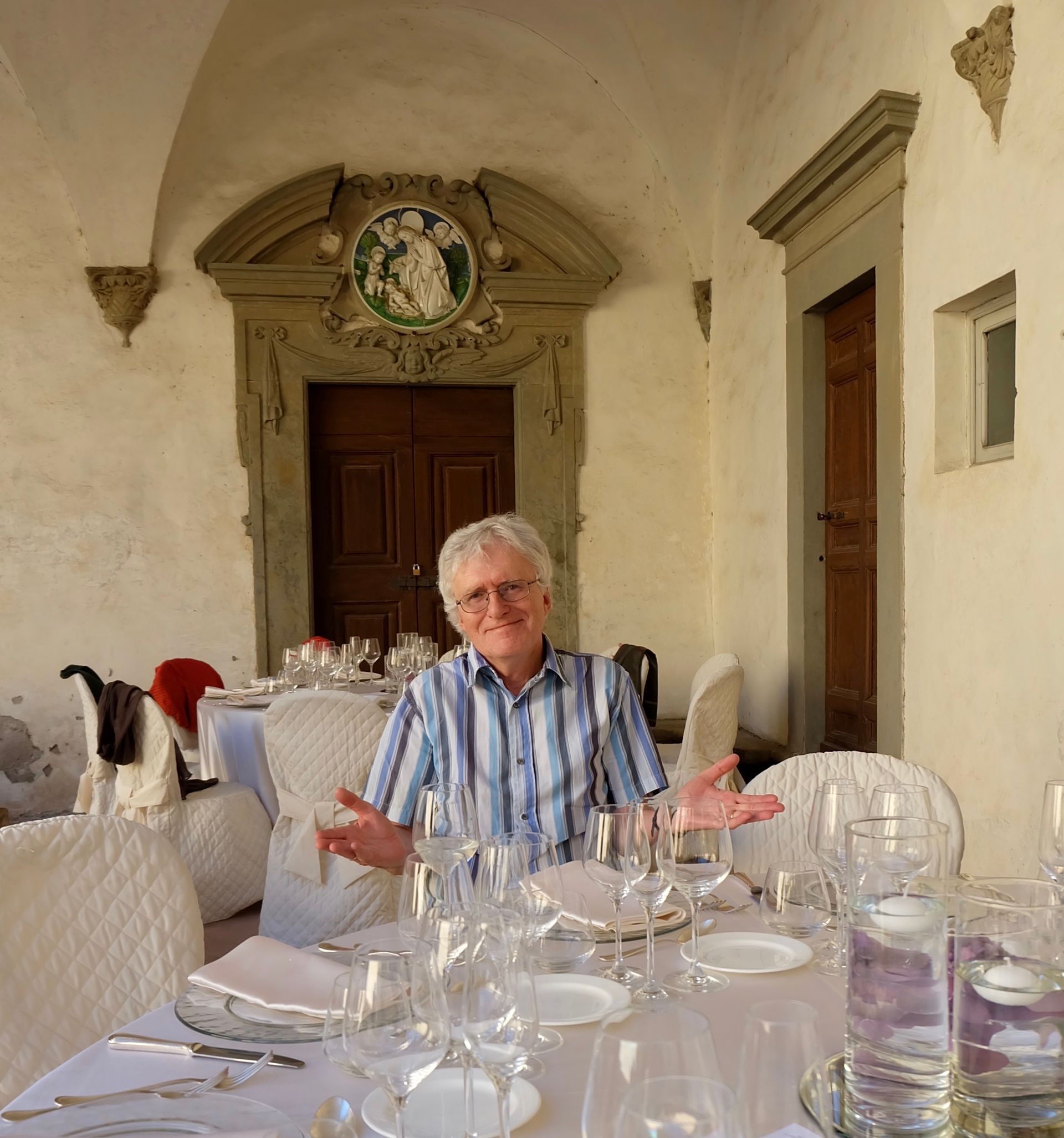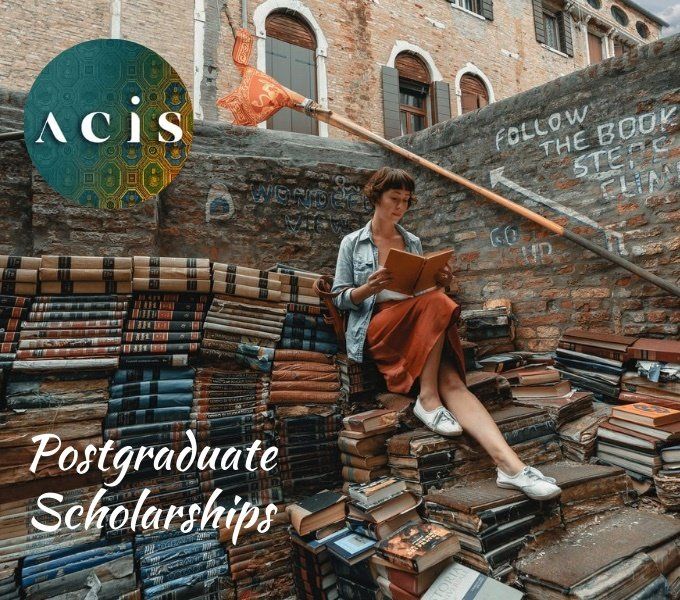Vale David Moss (1946-2024)
It is almost one year since our colleague, friend, and former Chair of ACIS left us. We have asked former ACIS Chairs, Management Committee Members, and awardees to share their memories and thoughts. We are hoping to add more statements from anyone who knew David, especially while he was supporting ACIS. If you would like to share your memories with the ACIS community, please write to admin@acis.org.au.

Vale, David
One of the greatest losses that ACIS, and Italian Studies more generally, suffered in 2024 was the passing of David Moss, the founding Chair of the ACIS Management Committee, co-convenor of the first ACIS Conference in Canberra at the ANU in 2001, and the most indefatigable and innovative champion of the cause of Italian Studies in Australia and New Zealand.
David was born in London on 20 May 1946. He went to boarding school in Dorset where he excelled at sports but also secured a place at Magdalen College, Oxford, where he read History. He soon developed an interest in Social Anthropology, so he enrolled to do a PhD in Social Anthropology at the university of Kent. Ever adventurous, he chose pastoralism in Central Sardinia as his thesis topic, thus making it necessary to do his fieldwork in Italy. He immediately came to love Italy and having achieved his doctorate is reported to have declared: ‘I am a social anthropologist and the Italians are my tribe.’ However, in the great leap forward of the postwar period, during the so-called Italian economic miracle, the Italians themselves had abandoned pastoralism in a headlong race to the glittering offerings of industrial consumer capitalism and, in the process, had generated a chaos of social change that had resulted in the rise of left-wing terrorism. David immediately grasped the opportunity of making this his new field of research and expertise. His The Politics of Left-Wing Violence in Italy, 1969-1985, published in 1989, marked him out as one of the international go-to experts in the field.
By this time, he had already taken up a Senior Lectureship in Italian Studies at Griffith University (Brisbane), soon being promoted to Professor of European/Italian Studies as well as serving as the Dean of the Faculty of Arts. At Griffith, he met Barbara Misztal, a sociologist, and they married, with daughter Nika completing their family.
It was during this period that David was able to contribute to the birth of ACIS and to put it on the road to a secure future by serving as the founding Chair of its Management Committee. However, there was always the lure of Europe and when in 2002 his wife Barbara was offered a professorship in Sociology at the University of Leicester, David too, having previously declined an appointment at the University of Turin, now accepted becoming the only non-Italian lettore ordinario in the Faculty of Cultural Anthropology at the prestigious State University of Milan. He remained a very active member of ACIS from a distance and continued to be so even after retiring from teaching at the University of Milan, indeed taking the reins again as a very innovative Chairman of the Management Committee between 2012 and 2017.
After having played a key role in the development of Italian Studies in Australia, David turned his attention more and more on his family and his three grandchildren, in whose midst he passed away after a short illness.
Vale David. ACIS will be the poorer for having lost you. However, rest assured that you have put it on such a sure footing that even in the present challenges faced by universities, its position as beacon of Italian Studies remains secure.
Thanks to you.
[GM]
****
It has been hard for me to conceive of an ACIS without David Moss.
A man of rare open generosity of spirit whose sole goal it would seem was to celebrate others’ work and facilitate them in finding the means, financial as well as collegial, to further their research ambitions. Never partial to his own interests, he supported all comers from all disciplinary areas of the broad church that is Italian Studies in Australasia. His were both impossible shoes to fill as an incoming Chair, but also the most delightful of shoes to fill. He left them as soft ciabatte, with a well-worn tread. Wearing them, I had a ready-made excuse to consult him in what became delightfully meandering conversations via Skype as he sat in his attic study in Leicester and I in mine in Carlton.
Such was his self-effacing British manner that most members of the ACIS community would not be aware of how much time and effort he spent in furthering the organisation’s interests.
His is a great loss.
[CK]
****
David’s leadership in Italian Studies was unwavering, infectiously enthusiastic, supportive, and inspiring. He always looked for new and effective ways to promote and support the study and teaching of Italian culture and language.
One of his most significant and successful projects as Chair of ACIS was to support early career researchers by offering them project-based funding that allowed them to expand their academic networks, partnerships, and experience.
A former student and colleague of David shared her experience with working with and learning from him: ‘David has always been so encouraging [..] without being at all pushy or even obvious about it, and I know he has been so not just with me but with very many people. And always so gently erudite and witty!’.
David always had a ‘can-do’ approach. He was an endless source of encouragement to all colleagues and friends in Italian Studies. It did not matter whether you were a professor, a junior lecturer, or a student: he had time for anyone who had a new idea or project that would benefit the community of scholars and students.
Having excelled as a scholar examining and exposing the dark sides of Italian culture, society, and history (from sheep farming and banditry in Sardinia to key issues of clientelism, terrorism, violence, and corruption), David was very keen to make sure that the Italian studies communities in Australia, New Zealand, and Italy did not fall into some of the traps of Italian academia and society: favouritism, intellectual stagnation, and fear of innovation.
David offered his support with wit, irony, professionalism, and ‘esprit.’ I have delightful memories of skyping with him about some new research ideas or initiatives; he had a unique penchant for shifting seamlessly between light conversation and serious business. Very often, at the end of our Skype chats, I would find myself smiling while revisiting some of David’s sharp comments and then suddenly realise that I had agreed to write several entries for the ACIS website and two research proposals. It was impossible to say no to David because everyone who worked with him knew that he was always doing more for us and our community. And it was always a joy to work with him.
In May 2024, one of David’s postdoctoral students in Milan, and now Associate Professor at the same University, Angela Biscaldi, wrote the following about David:
From David I learned my passion for teaching (when pedagogy in anthropology was not a thing yet). I admired the meticulous and punctual way in which he prepared lessons and seminars for his students, starting always from a "road map." David has qualities that were very uncommon in the Italian academic world, such as his lack of interest in any form of power, an infallibly elegant kindness with which he interacted with students, colleagues, and administrators, and an extraordinary generosity. This same generosity was evident when, upon returning to Leicester, he gifted me everything from his study (books, CDs, notebooks, prints, tourist guides...) with the request to keep only one item aside for him, in anticipation of his future return: the original edition of Evans-Pritchard's "Witchcraft, Oracles and Magic Among the Azande," which still sits on my desk, awaiting his return.
I relate to Angela’s experience of David. His generosity, kindness, and professionalism are unmatched. A few days ago, one of his closest friends in Australia, Gino Moliterno, reminded us of an article David wrote in 2011 to celebrate the successes of Italian studies. In it, David quotes the Italian Renaissance intellectual and architect Leon Battista Alberti who famously offered advice on how to live a full and virtuous life: ‘Wit, judgment, memory, reason, counsel, and other faculties are not given to us to remain unused.’ David had all of these qualities and many more, and he certainly used them most generously.
Vale David, friend, colleague, and mentor.
[AR, GM, and CKe]
****
As Chair of ACIS, David Moss set up important avenues of support for early career researchers. The Honorary Research Associate (HRA) program provided PhD graduates in Italian history and Italian Studies with the mentoring and the funding to generate new projects and continue archive work. Thinking back to an uncertain time in my career, it’s very unlikely that I would have continued in academia without this support. I am very grateful for the support, and his kind and encouraging ways.
Thank you, David.
[EB]








